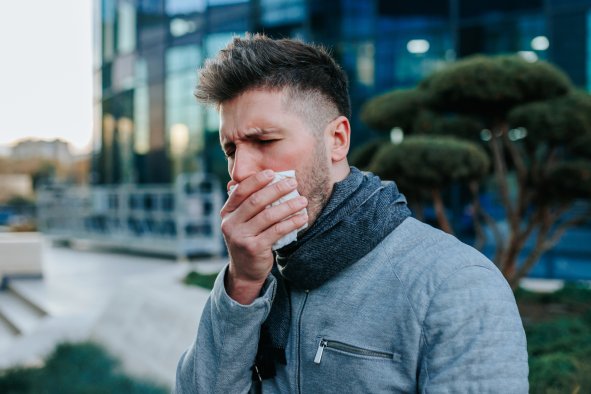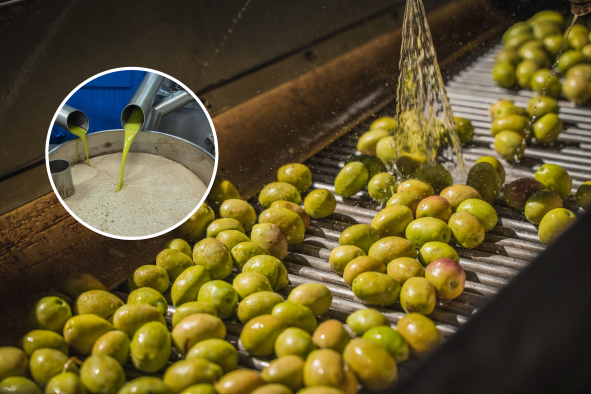Too much soda, fruit juice and coffee could significantly increase the risk of stroke, according to research led by the University of Galway, Ireland.
"Our most important findings were the links with increased chance of stroke with high coffee intake or frequent intake of fizzy drinks or fruit juice drinks," Professor Andrew Smyth, epidemiologist at Galway, told Newsweek.
Every 40 seconds, someone in the U.S. has a stroke, and every year, 795,000 Americans have a stroke, according to data from the American Heart Association.
Strokes happen when blood supply to the brain is disrupted, leading to damage to the brain cells. In 87 percent of cases, this is because of a blood clot—called ischemic stroke—but it could also be due to bleeding in the brain, known as an intracerebral hemorrhage.
Researchers found that drinking soda—both sugar-sweetened and artificially sweetened—was linked with a 22 percent increased chance of stroke, and that risk increased sharply if a person drank two or more sodas per day.
They also found that fruit drinks were associated with a 37 percent increased the chance of intracerebral hemorrhage; two of these drinks a day tripled this risk.
"Not all fruit drinks are created equal," said Smyth in a statement. "Freshly squeezed fruit juices are most likely to bring benefits, but fruit drinks made from concentrates, with lots of added sugar and preservatives, may be harmful."
Women seemed to be particularly affected by fruit juice and fruit drinks; women who drank more of these drinks were associated with a greater risk of intracerebral hemorrhage than men.
Tea and coffee were also associated with changes to stroke risk, researchers found. Drinking more than four cups of coffee per day was linked with an increase in stroke risk by more than a third—however, less coffee was not associated with more risk of stroke.
"We encourage people to limit coffee intake to less than four cups per day, reduce or minimize the intake of fizzy drinks and fruit juice or drinks, and when choosing a cold beverage, to opt for water as much as is possible," Smyth told Newsweek.
"For those that consume lots of those beverages, we would encourage them to reduce their level of frequency of intake overall."
But not all drinks the scientists investigated were linked with an increased chance of stroke. The opposite was true for tea, which was associated with a decrease in stroke risk of approximately 20 percent.
Drinking three to four cups of black tea per day was associated with a 29 percent lower chance of stroke, and the same amount of green tea with a 27 percent lower chance of stroke.
However, those that added milk to their tea seemed to block this benefit. Researchers found that tea with milk was not associated with a lower stroke risk.
There were also differences depending on where study participants lived. The link between sodas and stroke risk, for example, was strongest in eastern and central Europe, the Middle East, Africa and South America.
Meanwhile, tea was associated with a lower chance of stroke in China and South America, but a higher chance of stroke in south Asia.
This research was based on data from the INTERSTROKE research project: one of the largest international studies of risk factors for stroke ever.
INTERSTROKE involved almost 27,000 people in 27 countries—including almost 13,500 people who experienced their first stroke during the study—with a broad range of geographical and ethnic backgrounds, and health statuses.
"We performed INTERSTROKE to explore a wide range of risk factors for stroke—and there are lots of different publications looking at many risk factors," Smyth told Newsweek.
"We have a particular interest in exploring lifestyle risk factors, particularly those beyond the traditional cardiovascular risk factors—such as high blood pressure, high cholesterol, etc.
"As we previously looked at diet, we extended our research to look at drinks."
This research was published as two separate studies in two separate scientific journals: Journal of Stroke and International Journal of Stroke.
Scientists at the University of Galway worked in collaboration with scientists at McMaster University, Canada, and an international network of stroke researchers.
Their findings were observational, so they only point to correlation and cannot prove cause and effect relationships.
Do you have a tip on a food story that Newsweek should be covering? Is there a nutrition concern that's worrying you? Let us know via science@newsweek.com. We can ask experts for advice, and your story could be featured in Newsweek.
Reference
Smyth, A., Hankey, G. J., Damasceno, A., Klingenberg Iversen, H., Oveisgharan, S., Alhussain, F., Langhorne, P., Xavier, D., Lopez Jaramillo, P., Oguz, A., McDermott, C., Czlonkowska, A., Lanas, F., Ryglewicz, D., Reddin, C., Wang, X., Rosengren, A., Yusuf, S., O'Donnell, M. (2024). Carbonated Beverage, Fruit Drink, and Water Consumption and Risk of Acute Stroke: the INTERSTROKE Case-Control Study, Journal of Stroke 26(3). https://doi.org/10.5853/jos.2024.01543
Smyth, A., Hankey, G. J., Langhorne, P., Reddin, C., Ryglewicz, D., Rosengren, A., Xavier, D., Canavan, M., Oveisgharan, S., Wang, X., Jaramillo, P. L., Damasceno, A., Czlonkowska, A., Iversen, H. K., Lanas, F., Yusuf, S., O'Donnell, M. (2024). Tea and coffee consumption and risk of acute stroke: The INTERSTROKE Study, International Journal of Stroke 31:17474930241264685. https://doi.org/10.1177/17474930241264685
Disclaimer: The copyright of this article belongs to the original author. Reposting this article is solely for the purpose of information dissemination and does not constitute any investment advice. If there is any infringement, please contact us immediately. We will make corrections or deletions as necessary. Thank you.



